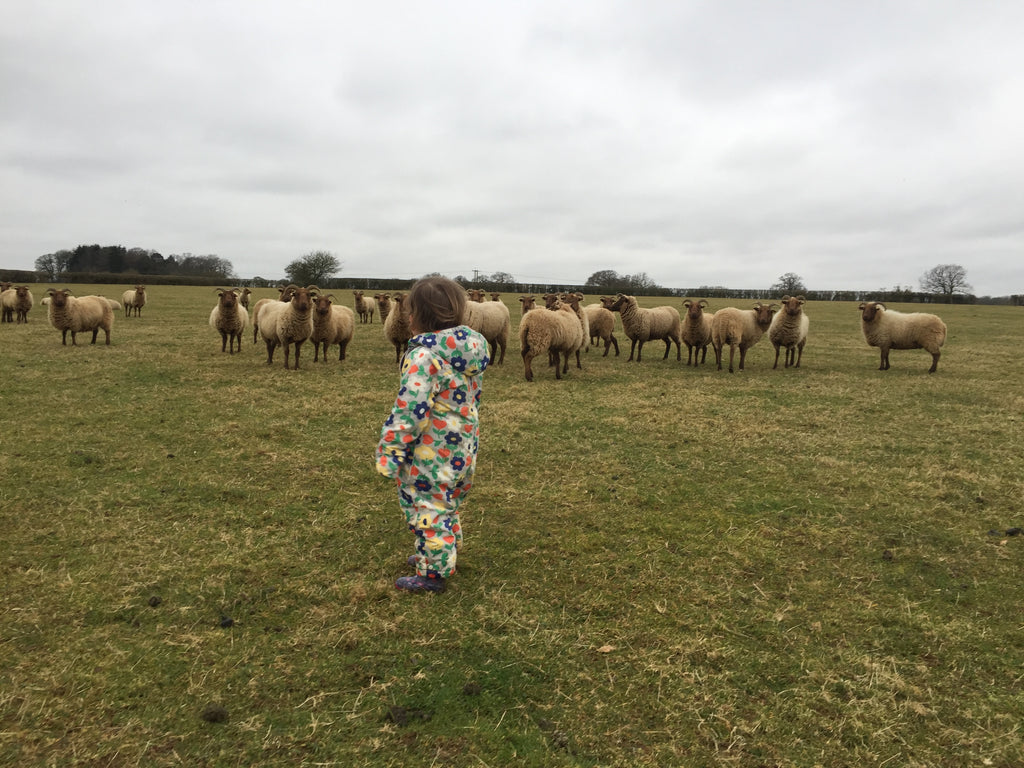Education
We’re passionate about what we do, our rare breed sheep and organic farming. We love to share this passion with school and public groups through planned education activities or open days.
Schools
We’ve worked with local schools for the past ten years to create a visits programme that enable children to learn about food production and the countryside in a safe environment. The farm is part of The Countryside Educational Visits Accreditation Scheme (CEVAS) and has no moving machine or slurry pits.
The lambing period from March to April is the best to time to visit. However, throughout the year grassland and wildflower studies and pond dipping can all take place, the summer is an espically season to be in the hay meadows. During the visit children learn about types of sheep and what they produce. They see fleeces, balls of wool, sheepskins, horns and learn about the way in which the flock is managed.
School visits are free and refreshments are provided for children, staff and helpers.
The visits can tie in with many subjects in the national curriculum. For example:
History and Geography
Ridge and furrow fields: Drainage, maximizing land area, formation of dry land. Formed by drainage and circular medieval ploughing.
Science and Citizenship
Ewes and lambs, flock management: Life cycles, age of ewes when bred, age of lambs when weaned, animal welfare, food, shelter, habitat, grazing.
Maths
Traceability, recording and data collection: Number of ewes in flock, number of lambs born, lambing percentage. Number of lambs born to number sold, to number fattened.
Science and History
Rare breeds, rare breed sheep and genetics: Genetics and breeding, uses of sheep and uses of sheep byproducts. Wool towns and history of trade in wool and skins.
English
Organic farming: How farms are run, where food comes from, how it is produced and why in that method, effect on climate change.

